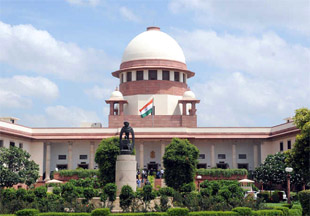
New Delhi (TIP)- Holding that royalty payable on minerals is not a tax, the Supreme Court on Thursday, July 25, said states have the legislative competence to impose taxes on mineral rights and mineral-bearing land.
“Royalty is not a tax. Royalty is a contractual consideration paid by the mining lessee to the lessor for enjoyment of mineral rights. The liability to pay royalty arises out of the contractual conditions of the mining lease. The payments made to the Government cannot be deemed to be a tax merely because the statute provides for their recovery as arrears,” a nine-judge Constitution Bench led by CJI DY Chandrachud said.
“The legislative power to tax mineral rights vests with the State legislatures. Parliament does not have legislative competence to tax mineral rights under Entry 54 of List I, it being a general entry. Since the power to tax mineral rights is enumerated in Entry 50 of List II, Parliament cannot use its residuary powers with respect to that subject-matter,” the Bench said in an 8:1 verdict.
“The State legislatures have legislative competence under Article 246 read with Entry 49 of List II to tax lands which comprise of mines and quarries. Mineral-bearing land falls within the description of “lands” under Entry 49 of List II,” the majority said. While justices Hrishikesh Roy, Abhay S Oka, JB Pardiwala, Manoj Misra, Ujjal Bhuyan, Satish Chandra Sharma and Augustine George Masih agreed with the CJI, Justice BV Nagarathna dissented to say that states do not have the legislative competence to levy taxes on minerals and mineral-bearing land. She said it “would lead to a breakdown of the federal system envisaged under the Constitution in the context of mineral development and exercise of mineral rights.”
As the Bench pronounced the verdict, senior advocates representing various states urged it to make the verdict operational with retrospective effect to ensure refund of taxes from the Centre even as Solicitor General Tushar Mehta insisted that the verdict should be made effective prospectively. Source: TNS





Be the first to comment